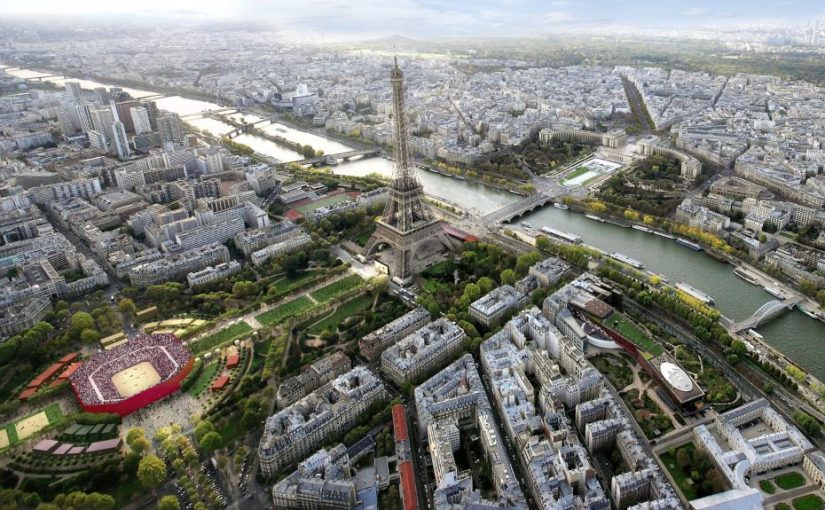As anyone who has monitored the bidding process for any major event, it’s a difficult one to say the least. We’re not just talking about the vast sums of money involved (usually in the form of tens of millions) but also the other tactics that can fuel this sort of event.
In the case of the Olympic Games in 2024, France threw everything at the event. Their mission was to secure the Olympic and Paralympic Games during this year and following the announcement that main rival Los Angeles would be hosting the event later in 2028, their approach was successful.
As well as financial backing, one of the other reasons behind their success was pressure from the authorities. The French government pushed everything they could to secure this event for the city of Paris, and through the course of this guide we’ll discuss exactly how they did this.
The history behind the bid
There was plenty of reason behind Paris’ bid for the Games – and the city has more experience than most other countries when it comes to events of this magnitude.
If we cast our minds back less than twenty years, World Cup 1998 is regarded as one of the best football tournaments over recent times. It was their ample delivery of this tournament that resulted in them being awarded Euro 2016, where they once again demonstrated a fantastic ability to host such a prestigious event.
It’s not just football where the city has excelled, though. The 2017 World Men’s Handball Championship was also held there – which shows that Paris isn’t a one trick pony, so to speak.
As well as the obvious appeal to the public, let’s take a look at Paris’ results from an economic perspective in relation to these events. If we hone in on Euro 2016, this event brought in an additional one billion euros to the French economy. This is in addition to the estimated 10,000 jobs that were created, as well as the 600,000 tourists who visited the country.
Views from the Prime Minister
As we discussed earlier, the government of France played a big part in helping to get this event for the city. In early 2017, Bernard Cazeneuve assured people that the city was making a huge commitment to the Olympics and ensuring that their knowledge of hosting previous events would serve them well.
While some may view such comments as “just words”, considering some of the badly managed sporting events that have occurred over the years there’s no doubt that comments like this from the Prime Minister were reassuring for those making the final decision.
The sustainability factor
Unsurprisingly, sustainability has been a huge factor in the build-up to major upcoming events. As we’ll discuss shortly, this is where the Olympics has faltered in the past but Paris has made promises for both before and after the event takes place.
We’ll get onto their responsibilities in the aftermath shortly, but in relation to beforehand the authorities have promised that sustainable development will be a priority for stakeholders. This will involve deep collaboration with the relevant local authorities, to safeguard the area’s short and long term needs.
State commitments
One of the big complaints from past Olympic Games has been the fact that they haven’t really left a legacy. Sure, there’s a psychological legacy in some regards, but if you were to take a look around the likes of Rio and even Athens from years ago it would become clear that many of the venues that were constructed are simply not being used effectively. In fact, many have been left to ruin. The conclusion of this from the public, and this includes people from all over the world, is that the millions of dollars spent investing in such infrastructure was all for waste.
This is where Paris wanted to be set apart. During their proposal for the Games, it became clear that they wanted to use this as an opportunity to encourage sport in the country, making sure that all venues are being used efficiently. There were two commitments that stood out during the proposal:
- The country have outlined a budget of around €20m that can be used towards a sports development plan. This would be utilized from 2017 and onwards, with the aim of improving the sporting fortunes of local areas. The funding would be channeled through the national Center for Sports Development.
- Further budget has been outlined to support the “Sport and society” program. This is one program which has arguably been missing from past Olympic Games, as it is designed to be used around sporting education, employment, the development of company sport amongst other issues.
A summary on Paris’ successful bid for the Olympics
As you can see, the bid for France to host the 2024 Olympics and Paralympics was comprehensive to say the least. It had backing from all of the major government associates, but perhaps more importantly was Paris’ history in hosting such successful sporting events. Over the years two of the largest sporting events in the world, in the form of the World Cup and Euro 2017, were held there and both were regarded as a resounding success.
Particularly as we now reside in a world which is heavily focused on sustainability, the fact that the country was able to make the above events such economically beneficial will have also stood them in positive stead as well.

